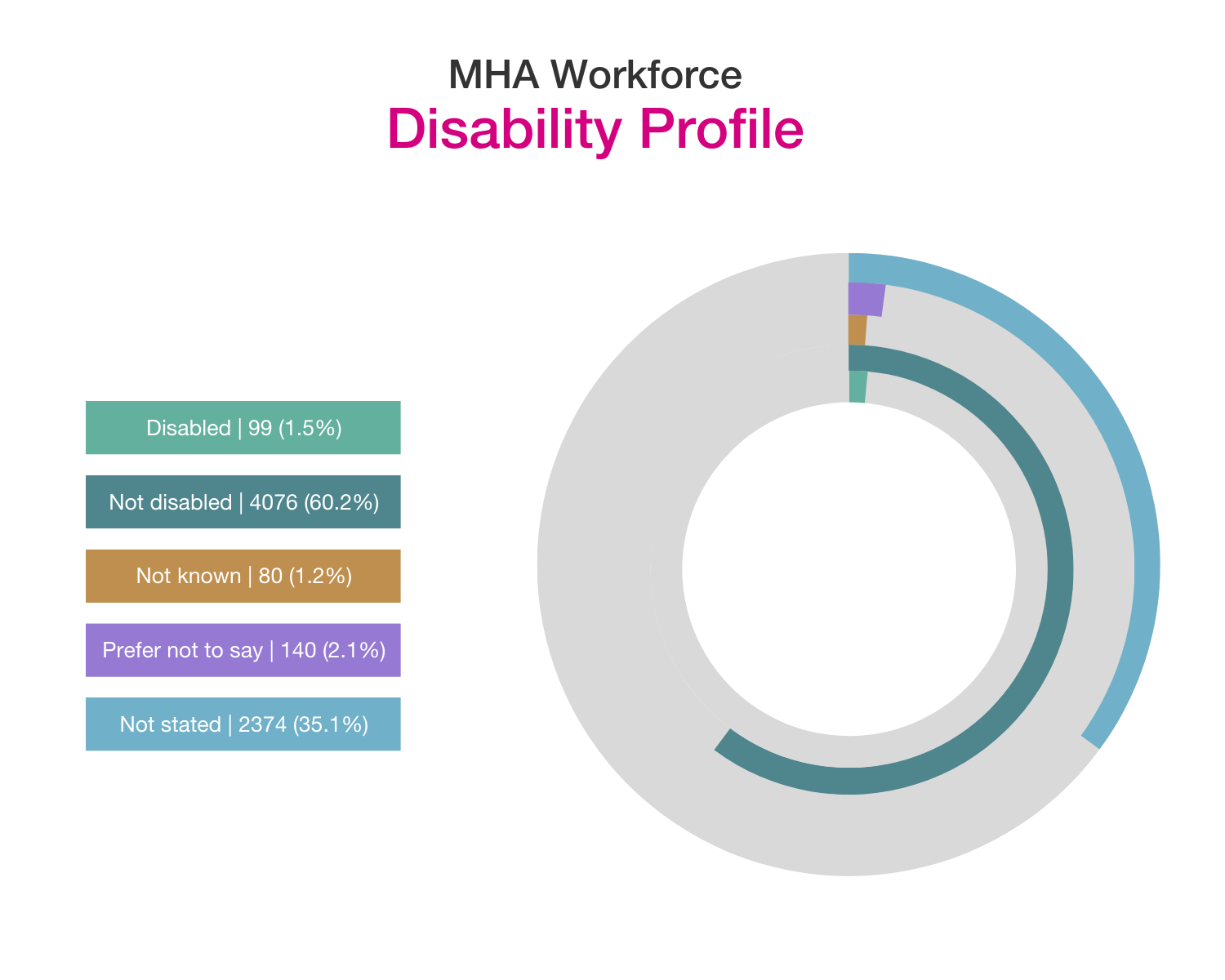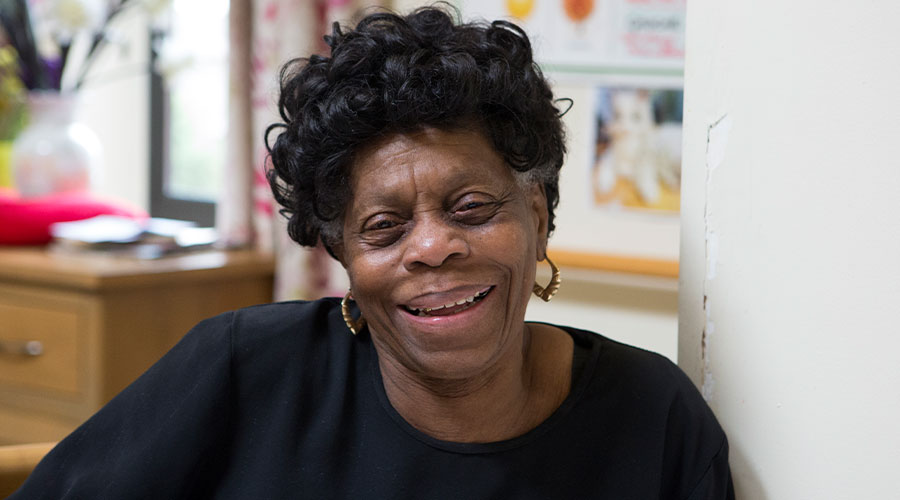- A
- A
- A
Disability
MHA is working to support people with disabilities both in the workplace and in the services we provide.
At MHA we define disability as: “A physical or mental impairment that has a substantial and long term adverse effect on a person’s ability to carry out normal day to day activities”.
We understand that disability can affect many people and covers a wide range of conditions of which some are not visible.

In the workplace, MHA has committed to making reasonable adjustments to support employees and volunteers with disabilities and make sure that individuals are not disadvantaged when delivering services on behalf of MHA. Reasonable adjustments can include:
- Making physical changes – e.g. installing a ramp for a wheelchair user or an audio-visual fire alarm for a deaf person
- Working to make our buildings inclusive for all, whilst ensuring any additional needs are met (e.g. holding meetings in ground floor rooms if a wheelchair user is attending)
- Providing specialist equipment where necessary (e.g. an adapted keyboard for a colleague with arthritis)
- Supporting employees who become disabled to make a phased return to work – e.g. working flexible hours or part-time.
MHA also has a Disability Network, which is open to all colleagues to join. This group is currently made up of a mixture of colleagues who have a disability and those who are interested in promoting equality for colleagues with disabilities. The group works to raise awareness around different conditions and the impact on people within MHA. It provides peer support and informs MHA on issues or concerns with existing policies or processes.
Disability and our workforce 2022-2023
The disability profile of the workforce at MHA stands at 1.5% of the workforce and this reflects no changes when compared to December 2022 when it stood 1.55%.

The disability profile of the workforce remains largely unchanged when compared to the profile in June 2022. However, it has increased slightly over the last 2 years since March 2021 when the disability profile was 1.2%. The disability profile at MHA is extremely low when compared to the disability profile of those in the working population which stands at around 20%. However, this profile reflects the Adult social care sector.
MHA is undertaking initiatives to attract people with disabilities in order to increase the profile within the workforce.
In relation to the workforce that has NOT declared their equality monitoring information, the profile has not changed significantly. As of 31 March 2023, the proportion of the “NOT Stated” category stood at 35.1% which is a drop from 36.2% the previous year.
Disability Confident Employer Level 2
The Disability Confident scheme aims to help employers make the most of the opportunities provided by employing disabled people. It is voluntary and has been developed by employers and disabled people’s representatives.
The Disability Confident scheme has 3 levels that have been designed to support an organisation on its Disability Confident journey. MHA has committed to doing more for people with disabilities and was awarded the Level 2 in August 2022 after submitting a self-assessment to the Department of Works and Pensions (DWP).
As part of our commitment we:
- Work with Scope to advertise job opportunities that arise at MHA.
- Guarantee interviews for disabled people who meet the personal specifications of our job vacancies.
- Will support requests for reasonable adjustments for disabled people in order to assist with the recruitment process where a reasonable request has been made.
- Aim to support all disabled employees to stay in work by providing reasonable adjustments in the workplace where the need has been identified.
- Monitor our disability workforce profile and compare this to the adult social care sector as well as the UK demographics.
- Monitor the impact of our policies on people with disabilities.
- Include disability in our EDI related training.
- Have a dedicated Disability Network for employees and volunteers.
- Explore partnerships with other organisations that provide support for disabled people with securing long term employment.
MHA will continue to build on the foundations we have achieved so far in order to ensure that we become a leading employer for disabled people in the adult social care sector.
Useful links
The following links will give you access to a number of leading organisations whose work in promoting disability-related equality is recognised either at a national or local level.
Equality and Human Rights Commission
More about MHA equality and diversity

Equality & Diversity
At MHA, we’re dedicated to promoting equality, diversity and inclusion throughout the organisation across the UK.
Find out more




